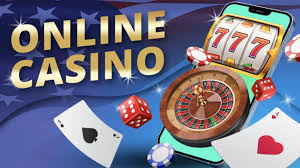The Joker card, often considered the wild card of a deck, holds a unique place in card games and popular culture. Its intriguing design and multifaceted jokercard balance have led to its recognition beyond the realm of gaming, making it a cultural icon. This article explores the history, meaning, and significance of the Joker card.
Historical Background
The Joker card emerged in the United States during the mid-19th century, primarily as a trump card in the game of Euchre. As the popularity of card games grew, so did the role of the Joker, which soon became a fixture in most modern decks. Its design has evolved over the years, typically depicted as a jester or harlequin, complete with colorful attire and a whimsical expression.
Initially, the Joker served a practical purpose in games, but its chaotic nature and unique ability to represent any card made it a favorite among players. It provided an element of unpredictability, which contributed to the excitement of gameplay.
Symbolism and Meaning
The Joker card is steeped in symbolism. It often embodies chaos, mischief, and unpredictability. In many interpretations, the Joker represents the trickster archetype, a figure who disrupts the status quo and challenges societal norms. This symbolism is evident in literature and folklore, where trickster figures often bring about change or reveal deeper truths.
In psychological terms, the Joker can be associated with the shadow self, representing the hidden aspects of one’s personality. It encourages individuals to embrace their complexities and contradictions, acknowledging that chaos is a natural part of life.
The Joker in Popular Culture
The Joker’s influence extends beyond card games into various forms of media, particularly in comics and films. The character of the Joker, primarily known as the archenemy of Batman, has become a cultural phenomenon. With portrayals by actors such as Cesar Romero, Jack Nicholson, Heath Ledger, and Joaquin Phoenix, the Joker has evolved into a symbol of anarchic chaos, challenging authority and societal norms.
The Joker’s duality—often portrayed as both a villain and a misunderstood antihero—reflects the complexity of human nature. This depth has captivated audiences, leading to critical discussions about morality, sanity, and the societal factors that shape individuals.
The Joker in Games
In games, the Joker card serves as a wildcard, allowing players to adopt various strategies. It can stand in for any card, making it a powerful ally in games like Poker and Rummy. The strategic value of the Joker can shift the dynamics of gameplay, adding an element of surprise and excitement.
Some games utilize multiple Jokers, increasing the chaos and unpredictability of the game. This versatility is a testament to the Joker’s ability to adapt and fit various roles, much like its representation in culture.
Conclusion
The Joker card is more than just a playful addition to a deck of cards; it is a rich symbol woven into the fabric of culture, literature, and psychology. Whether viewed as a chaotic force in games or a complex character in storytelling, the Joker invites us to explore the unpredictable nature of life. As a reminder that not everything can be categorized or understood, the Joker encourages us to embrace the chaos and uncertainty that often accompany our journey.
